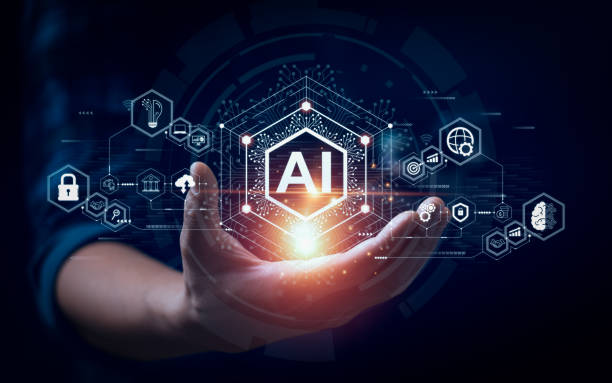New York, June 8, 2024 – A recent report by McKinsey & Company has revealed that artificial intelligence (AI) is set to transform 12 million jobs by 2030. The report highlights the significant impact AI will have on various industries and the job market. It emphasizes the need for workers and businesses to adapt to this technological revolution.
Key Findings of the Report
The McKinsey report provides a comprehensive analysis of how AI will reshape the job landscape. Here are some of the key findings:
- Job Transformation: AI will transform 12 million jobs across different sectors by 2030. This transformation includes both job displacement and the creation of new roles.
- Industries Affected: The industries most affected will be manufacturing, healthcare, retail, and finance. These sectors are expected to see the most significant changes due to AI adoption.
- Skills Requirement: The demand for digital and technological skills will increase. Workers will need to upskill and reskill to remain relevant in the changing job market.
- Productivity Gains: AI is expected to boost productivity. Businesses adopting AI technologies will likely see improvements in efficiency and output.
Impact on Various Sectors
The report highlights how different sectors will be impacted by AI:
Manufacturing: AI will automate many tasks in manufacturing. Robots and AI systems will take over repetitive and hazardous jobs. This will lead to a safer work environment and higher productivity. However, it will also mean fewer traditional manufacturing jobs.
Healthcare: In healthcare, AI will assist doctors and medical professionals. It will help in diagnosing diseases, planning treatments, and managing patient data. AI will also enable personalized medicine, improving patient outcomes.
Retail: The retail sector will see AI-driven changes in customer service and inventory management. AI-powered chatbots and virtual assistants will enhance customer experiences. Automated systems will optimize supply chains and inventory levels.
Finance: AI will revolutionize the finance sector with advanced data analysis and risk management. Automated trading systems and AI-driven financial advice will become more common. This will lead to more accurate and efficient financial services.
The Need for Upskilling
As AI transforms jobs, the need for new skills will rise. The McKinsey report stresses the importance of upskilling and reskilling the workforce. Here are some recommendations for workers and businesses:
- Invest in Education: Workers should invest in education and training programs. Learning new digital and technological skills will be crucial.
- Embrace Lifelong Learning: Lifelong learning will become essential. Workers should continuously update their skills to stay relevant.
- Business Initiatives: Businesses should provide training and development opportunities for their employees. This will help in smooth transitions and maintain productivity.
Opportunities and Challenges
The adoption of AI presents both opportunities and challenges. On the positive side, AI can lead to higher productivity and economic growth. It can also create new job opportunities in emerging fields.
However, there are challenges as well. Job displacement is a significant concern. Workers in certain roles may find their jobs obsolete due to automation. Addressing these challenges will require coordinated efforts from governments, businesses, and educational institutions.
Government and Policy Makers
Governments and policymakers have a crucial role to play in this transition. The McKinsey report suggests the following measures:
- Policy Frameworks: Develop policy frameworks that support AI adoption while mitigating its negative impacts on employment.
- Support for Workers: Provide support for workers affected by job displacement. This can include unemployment benefits, retraining programs, and job placement services.
- Encouraging Innovation: Encourage innovation and research in AI. This will help in developing new AI applications and creating job opportunities.
Case Studies
The report includes several case studies of companies successfully integrating AI:
Example 1: A global manufacturing company implemented AI-powered robots in its assembly lines. This led to a 20% increase in productivity and a 15% reduction in workplace accidents. The company also retrained its workforce to manage and maintain these robots.
Example 2: A leading healthcare provider used AI to analyze patient data. This helped in early diagnosis of diseases and personalized treatment plans. As a result, patient outcomes improved, and healthcare costs were reduced.
Example 3: A retail giant adopted AI for inventory management. AI systems optimized stock levels and reduced waste. The company also used AI-powered chatbots to enhance customer service, leading to higher customer satisfaction.
Future Outlook
The future of work is set to be deeply influenced by AI. The McKinsey report paints an optimistic yet cautious picture. While AI offers numerous benefits, careful management is required to address its challenges.
Key Takeaways:
- AI will transform 12 million jobs by 2030.
- Sectors like manufacturing, healthcare, retail, and finance will see significant changes.
- Upskilling and reskilling the workforce is essential.
- Governments and businesses must work together to manage the transition.
Conclusion
The McKinsey report underscores the transformative power of AI in the job market. It highlights both opportunities and challenges. For workers, continuous learning and adaptability will be key. For businesses, investing in AI and their workforce will be crucial. Policymakers will need to create supportive environments for these changes.
As we move towards 2030, the landscape of work will undoubtedly change. Embracing AI and preparing for its impact can lead to a more productive and innovative future. The journey ahead requires collaboration, foresight, and a commitment to harnessing the benefits of AI while addressing its challenges.





